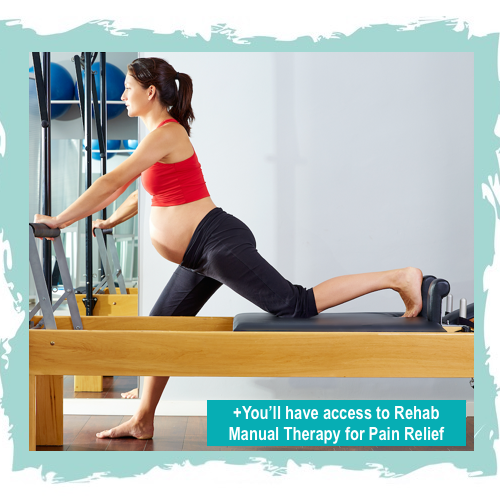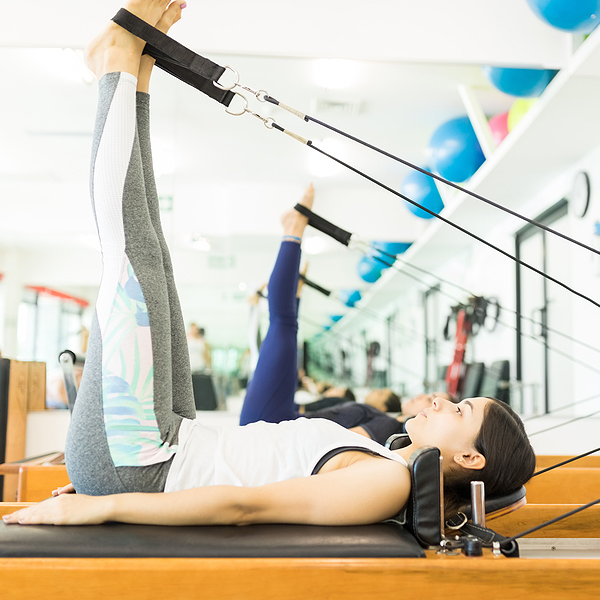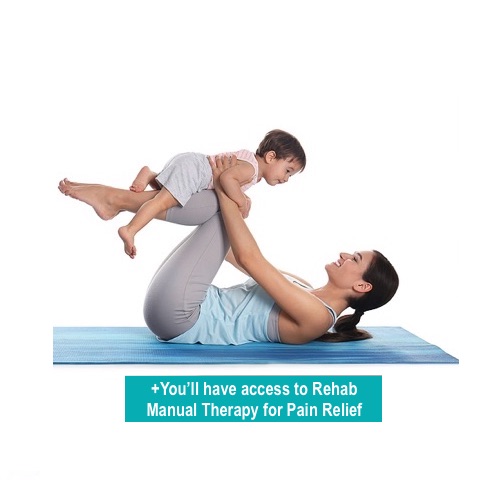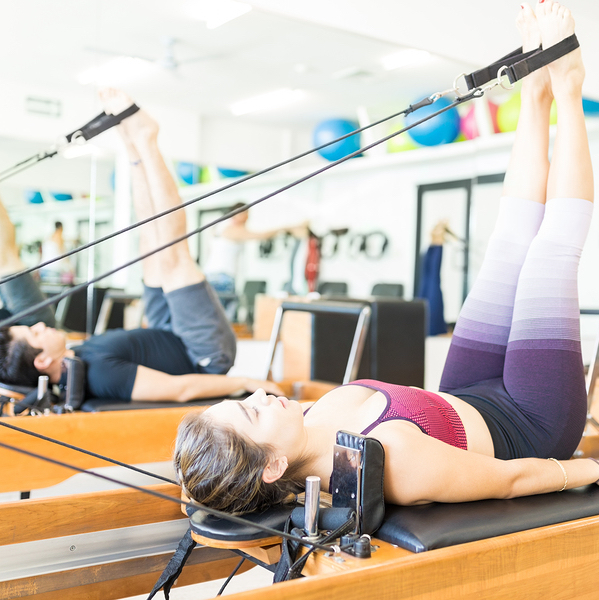Prenatal & Postnatal Pilates
If you are pregnant and feeling tired most of the time, meeting the recommended goal of 150 minutes of moderate aerobic exercise a week during pregnancy may seem impossible. The Prenatal Pilates sessions are designed to help you exercise and increase your energy level. They also help you cope with the demand of labour by keeping your core and other muscles strong.
Move seamlessly into the Postnatal Pilates sessions after delivery to get back into shape. Doing core exercise also helps the abdomen repair and recover postpartum.
Women are strongly encouraged to exercise during pregnancy. Regular exercise reduces low back pain, eases constipation, lessens the risk of diabetes and promotes a healthy weight gain while being pregnant.
WHY CORE EXERCISE
Another benefit of exercise is, core exercise in particular, reduces the risk of diastasis recti, a common occurrence during pregnancy. Diastasis recti is a condition where there is a separation of the abdominal muscle at the centreline of the abdomen.
Men may also suffer from diastasis recti, but the condition occurs more frequently in women due to the trauma on the abdominal muscle during pregnancy. Pressure from the growing uterus often results in a separation of the abdominal wall at the centre where the navel is located. Diastasis recti affects two out of every three pregnancies in the third trimester, with some studies indicating an even higher incidence in pregnancies.
Diastasis recti is common in pregnancies, yet not much research is available on the condition. But what is known is core exercise significantly reduces diastasis recti during pregnancy. Strengthening the deep abdominal muscles have also shown to help resolve diastasis recti postpartum.
DIASTASIS RECTI POSTPARTUM
Diastasis recti is expected to resolve on its own after delivery, but it is not always the case. A study in Norway shows diastasis recti is still present in one-third of women a year after giving birth.
It is believed diastasis recti persists even longer than a year. Several women’s health issues such as, a feeling of weakness in the abdomen, a stubborn tummy bulge that won’t go away, low back pain, hernia and urinary incontinence have been linked to diastasis recti. It seems a weakened abdominal muscle brought on by pregnancy has a longer term effect on women’s health.
Research still lags in the area of diastasis recti, but what is exciting is we are only beginning to realise the benefit of core training for pre- and postnatal care, and for women’s health in general.
C-SECTION, ABDOMINAL SCARS
It’s in Pilates studios where we see the benefits of core exercise happening and where science hasn’t caught up. If strengthening the core reduces diastasis recti, what it means is core exercise can also be used to treat other surface injuries and scars on the abdomen. The knitting effect created by core contraction, which closes the separation of diastasis recti, can also be used to close wounds and repair scars from Cesarean section or other surgeries, or trauma to the abdomen.
It is possible in the future, core training would give plastic surgery a run for the money. Instead of plastic surgery, you may opt for core exercise to tighten the abdomen and remove scars.
What we also see in Pilates studios is, they do not have to be fresh scars. Abdominal scars and stretch marks, which have been present for sometime, can also be reduced with core exercise. The exercise has brought joy to women who have had the scars for years, which has been incredible to watch. One of the leading advocates of core exercise for women’s health and fitness is Carolyne Anthony. The Malaysian-born, Chicago-based Pilates instructor and educator has done a lot of good work in the area. She has shown core exercise reduces abdominal scars and pelvic instability, and releases long-held tension in the body.
BREAKING NEW GROUNDS
Pilates is the exercise method which popularised core training. Today, Pilates studios are still breaking new grounds on how to train core more effectively. If you’re looking to strengthen your core muscles, try Pilates today. Please select from below the programme that best suits you:
Pilates for New Mothers

Prenatal Pilates 1-to-1
Having a baby is one of the happiest moments in a woman’s life. It is also a time where she experiences dramatic changes in her body. What you’ll receive from the 1-to-1:
- A personalised session to strengthen the core and tone the pelvic floor; reduce diastasis recti, ease low back pain
- Improve arm, back and leg strength; strengthen the body for the energy needed during delivery
- Access to Rehabilitation Manual Therapy to loosen tension on the neck, shoulders and upper back, common areas of pain during pregnancy
- Stretch the legs and ankles on the Pilates reformer; prevent leg cramps
- Flexible timing to suit your schedule, so you rarely miss a session
- Feel better and less tired
Don’t Wait, Schedule a Trial Today
today or sign up below.

Prenatal Group
Come join the Reformer Care classes. Selected classes are open to mothers-to-be. What you’ll receive:
- A 55-minute class to strengthen your core muscles, reduce the risk of diastasis recti and low back pain
- Exercise on the Pilates reformer, trapeze table and chair; enjoy exercise variations to help you through different stages of pregnancy: strengthen and stay active, never get bored
- Small group class of up to 4 participants to 1 instructor: receive the attention you need
Don’t Wait, Sign up for a Trial at $70* only
Class Time: Wed 10 am,
Wed & Fri 12 pm, Sat 1 pm
today or sign up below.



